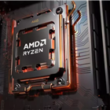Microsoft Windows 11 Updates: Addressing SSD Concerns
Recently, many users have raised alarms regarding issues with solid-state drives (SSDs) following the latest Windows 11 updates. Reports suggest that these updates are particularly problematic for SSDs utilizing group controllers.
Investigation Findings
In response to these concerns, Microsoft conducted a thorough investigation. The company found no evidence linking the August 2025 Windows 11 security updates to the reported failures or data corruption occurring in SSDs or mechanical hard drives (HDDs).
Microsoft’s team stated, “After comprehensive investigation, we determined that there is no correlation between the August 2025 security update and the hard disk failures reported on social media. We will continue to closely monitor user feedback following each Windows update and will investigate any future reports.”
This emphasis on ongoing monitoring highlights Microsoft’s commitment to addressing user concerns effectively while ensuring operational integrity for its platforms.
User-Reported Issues
The initial wave of reports emerged primarily from users in Japan. They discovered a troubling pattern: after installing the KB5063878 update, users who performed a high volume of write operations—specifically when their hard disk usage exceeded 60%—found that their SSDs became unrecognized by their devices.
This issue has been observed across multiple SSD brands, including well-known models like Corsair MP600, SanDisk Supreme High Speed SSD, and Kioxia Excelia Plus G4. Some affected users reported that their drives began functioning normally after a system restart, while others could not restore functionality even after rebooting their devices.
Testing and Industry Reactions
In light of these incidents, Phison, a notable player in the SSD controller market, has noted that they were unable to replicate these failures in thousands of hours of testing. This contradicts user experiences and underscores the complexity of diagnosing hardware-software interactions.
The disagreement between user reports and manufacturer tests raises important questions about how updates can affect devices differently. Users experiencing these issues have expressed frustration, as these malfunctions can lead to significant data risks and a general decrease in device reliability.
Moving Forward
As the situation unfolds, users are urged to remain vigilant and report any persistent issues directly to Microsoft or their hardware manufacturers. Regular feedback can help improve future updates and ensure the smooth operation of both software and hardware components.
In conclusion, while the concerns surrounding SSD failures linked to Windows 11 updates are valid and deserve attention, Microsoft’s investigation has found no direct association with the updates. Continued user feedback will be critical in guiding the tech giant as it refines its products and addresses potential issues. As always, consumers should ensure they are running the latest firmware and software versions to maintain peak performance and security.
By taking proactive steps in managing their Windows 11 installations, users can minimize any risks associated with these updates. Staying informed and engaged with ongoing developments will help maintain the integrity of data and devices in this evolving digital landscape.








